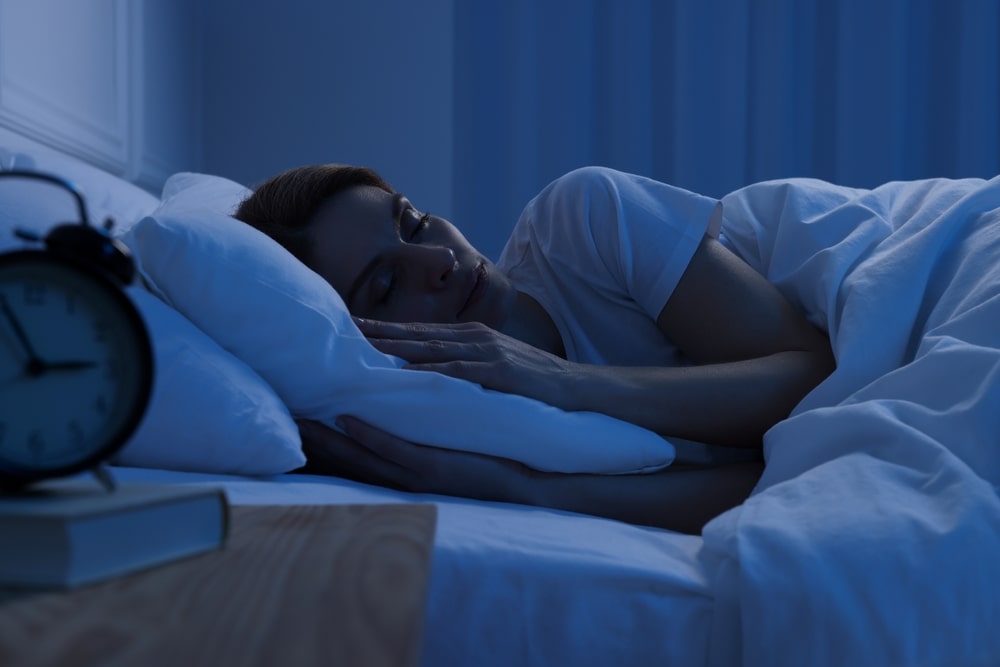
Adjustments in Your Routine to Take to Improve Your Sleep Quality
Improving your sleep quality doesn't require drastic lifestyle changes to be successful. Some simple adjustments in your routine could just do the trick. This comprehensive article will give you some simple yet effective adjustments you can make to improve your sleeping patterns, and you might soon find your sweet dreams just be around the corner.
What Makes Sleep Quality So Important?
Sleep is more than just the time you rest. It is when your body repairs tissues, consolidates memories, regulates hormones, and gives you energy for conquering another day. Yet in the busy world, from the stay at home moms to the corporate ladder climbers, sleep can often take a backseat to life's demands. Poor quality of rest can leave you feeling tired, unfocused and more likely than ever to rely on caffeine just to stay alert during the day. Improving sleep quality doesn't just involve avoiding yawns during 9 am meetings. Consistent quality rest can boost your immune function, boost your mood levels and even lower risk factors associated with chronic illnesses like heart disease or diabetes. This makes prioritizing to change sleep habits a no brainer.
Build a Rock-Solid Sleep Schedule
Building a reliable bedtime and wake-up time helps regulate your internal clock, or circadian rhythm, for an improved sleep quality. Your body thrives on consistency, so scheduling regular bedtime and wake-up times helps your internal biological clock keep in sync with external signals such as sunlight.
-
Try to wake up and go to sleep at the same time each day, even on weekends. And this includes Sunday, so stop yourself from falling victim to sleeping in until noon on that particular Sunday morning.
-
Keep a consistent sleep schedule of at least seven to nine hours every night. But finding your best number of hours varies from person to person.
Doing this will allow your body to recognize when it's time for bed and making falling and staying asleep easier in time.
Why Consistent Wake and Bed Times Matter
Following a consistent wake and bed time schedule is very important to keeping an optimal circadian rhythm. Your body has its own internal clock that operates on a 24 hour cycle, but irregular sleep patterns can interrupt this cycle and cause difficulty sleeping or waking up on time. Consistency helps your body understand when to release sleep-inducing hormones like melatonin for increased quality rest. However, irregular sleep times such as sleeping in on weekends can create what is known as "social jet lag", leaving you feeling tired and de-energized at the start of each workweek. By maintaining consistent wake and bed times throughout the week, you create the foundation for more restorative and energizing restful sleep.
Enhance Your Sleep Environment
Ok here is the goal: you want yourself to enter your bedroom that feels like an oasis designed for relaxation. And to create a sleep-friendly environment:
-
Keep it dark. Blackout curtains or eye masks can help keep city lights or moonbeams from invading your space.
-
Control the temperature. Controlling temperature ideally between 60°F and 67°F (15.6°C and 19.4°C).
-
Eliminate Noise. Earplugs or white noise machines may help block out distracting sounds.
-
Choose the right bed setup. Selecting the best mattress and pillow setup is important to your sleep quality. Don't cut corners here. Find options that provide adequate back support while still feeling comfy and relaxing.
Small adjustments can make a huge difference when it comes to setting the scene for a peaceful night's rest.
Why Choosing the Right Bed Setup Is Important
Your bed setup plays a critical role in determining the quality of your sleep and, by extension, overall well-being. A mattress that provides adequate support ensures spinal alignment to minimize back pain and discomfort. While pillows that fit your preferred sleeping position can alleviate pressure points and support proper posture during your sleep. Choosing high-quality yet cozy bedding will help create an inviting space where you just automatically relax before sleep takes over. Choosing quality over quantity (yes, we are talking about pillows here) allows your body to recover fully. Investing in finding your ideal setup isn't about luxury,- it's about investing in yourself so you wake up feeling rejuvenated ready to tackle another day of life ahead.
Limit Screen Time Before Bed
Giving in to screen time right before bed could be detrimental to your sleep. Screens emit blue light which interferes with melatonin production, the hormone responsible for making you sleepy. Instead, switch off all devices at least an hour prior to sleep time, using this time for low-stimulus activities like reading a book, meditating, or planning out your day ahead. If you absolutely must use your device at this point then consider activating blue light filters or wearing blue light blocking glasses so as to minimize some of the blue light impact.
Tweak Your Evening Diet
Your diet in the hours leading up to bedtime has an enormous effect on how restful your sleep will be that you will experience. Although ordering a pepperoni pizza at 10 pm might sound delectable, it could cause heartburn and interrupt your rest cycle. To improve sleep routines:
-
Avoid heavy or spicy meals close to bedtime. Try to finish your dinner three hours or more before going to bed.
-
Be wary of caffeine and alcohol when trying to sleep. Caffeine has the power to disrupt your rest even hours later, while alcohol may make you sleepy in the short term but disrupts REM stages of sleep.
-
Rather go for snack options that support sleep. Bananas, almonds or whole-grain crackers with peanut butter can make great light (yet satisfying) options that also promote relaxation.
Will Incorporating Light Snacks or Bedtime Tea Help Me Sleep Better?
Absolutely. Adding light snacks or bedtime tea into your evening routine can promote better sleep. Certain foods and teas contain compounds which promote relaxation and prepare the body for restful slumber. Almonds and bananas contain magnesium and potassium, both important for relaxing muscles and soothing the nervous system. Herbal teas such as chamomile or peppermint may also contain natural properties to encourage relaxation and ease your stress levels. When you want to add this step to your nighttime rituals, it's important to limit portions and avoid too many sugary or caffeinated treats as these could counteract any soothing benefits. But when you are using it right, light snacks or caffeine-free tea can provide comforting support that enhances your sleep quality.
Establish a Relaxing Bedtime Routine
Your brain loves rituals. So take advantage of that by creating a relaxing bedtime ritual to signal to your body that it's time for sleep. Consider it an effective way to take back control and help form a better sleep pattern every night.
-
Stretch, meditate or practice light yoga to release tension.
-
Take a warm bath or shower. This helps bring down your body temperature post bathtime and can promote restful sleep.
-
Listen to soothing music, try aromatherapy with lavender essential oil or write in your gratitude journal. Any of these methods should work effectively at reducing tension.
Repeating these activities can condition your mind into associating them with sleep, making dozing off much simpler.
The Magic of Music for Better Sleep
Listening to music before bed can do wonders in helping you sleep better. Soft, soothing tunes help lower your heart and breathing rate, creating an environment conducive to both mental and physical relaxation. Music also releases feel-good chemicals like dopamine that reduce stress and anxiety, which are two major contributors to insomnia. Plus, ambient or soothing music can drown out distracting background noises, creating a more peaceful sleeping experience and the steady rhythms can even sync up with your own internal clock and encourage deeper restorative restfulness.
Manage Stress Before It Manages Your Sleep
Stress has an uncanny knack of creeping into your bedtime, often by way of racing thoughts and mounting pressures that disrupt your peace and quiet when all you want is sleep. To combat this issue, try adding mindfulness and stress reduction practices into your day:
-
Practice deep breathing exercises by taking slow, intentional breaths.
-
Try progressive muscle relaxation, which involves tensing and then relaxing each muscle group from head to toe.
-
Create your to-do list earlier in the evening in order to leave your mind uncluttered before heading off to bed.
By relaxing your mind, you create the conditions for restful and undisturbed sleep.
The Impact of Stress on Sleep Quality
Long-term stress can severely disrupt your sleeping patterns, creating an incessant cycle where your poor rest feeds your anxiety. Elevated cortisol production results in altered circadian rhythms which disrupt your natural REM cycles in your body. Making it hard to fall or stay asleep throughout the night, compounding original feelings of irritation, anxiety, and fatigue. This will then aggravate your existing stress even further. Addressing this problem requires managing day-time stress as well as developing an effective bedtime ritual to relax your mind and body.
Get the Right Amount of Daylight
Natural daylight plays a big role in setting your internal biological clock, telling your body when to be awake and alert as well as signalling when it's time to relax and wind down.
-
Try spending some time outdoors in the early morning or late afternoon. Natural sunlight helps reinforce your circadian rhythm and can even improve your overall wellbeing.
-
If you can't be outside, maybe think about purchasing a light therapy lamp to simulate exposure to daylight during the day.
Keeping the lights dim during the evening can also help your brain's transition into sleep mode. Dimmer switches anyone?
The Role of Vitamin D in Sleep and Overall Health
Vitamin D plays a huge role in your overall health, including your sleep quality. Commonly referred to as the "sunshine vitamin," adequate levels of this important nutrient are produced when exposed to sunlight. Its production aids immune system functioning, bone health and mood regulation (among many other things). There are studies that indicate a link between deficient levels of vitamin D and having shorter or poor quality sleep duration. And if you have a lack of vitamin D intake through sun exposure, your diet or even taking supplements can be an effective way to get vitamin D in to make sure you have better physical well-being as well as improve your rest at night.
Stay Physically Active
Regular physical activity isn't just good for your waistline, it can also be invaluable when it comes to improving your sleep quality. Exercise not only exhausts your body physically but it also lowers stress and anxiety levels significantly, creating the conditions necessary for restful sleep.
-
Target 30 minutes of moderate exercise most days of the week, such as walking, cycling or yoga.
-
To keep yourself feeling relaxed before bedtime, avoid vigorous fitness training close to bedtime as this could make you too excited and energetic to relax properly.
An effective workout not only enhances your sleep quality, but it can also leave you feeling revitalized the next morning.
Sleep is very important to our health and well-being, so making simple adjustments in your daily routines can improve your sleep hygiene, leading to better sleep. Although creating a healthy relationship with sleep takes time and dedication, its rewards make the effort worthwhile. So next time you hit snooze or stay up late binge watching shows, think about how these may be impacting your sleep quality. And then use these tips to create a more restful slumber and enjoy sweet dreams. Over time practicing good sleeping habits will have profound benefits on your energy levels, mood and overall well being.
